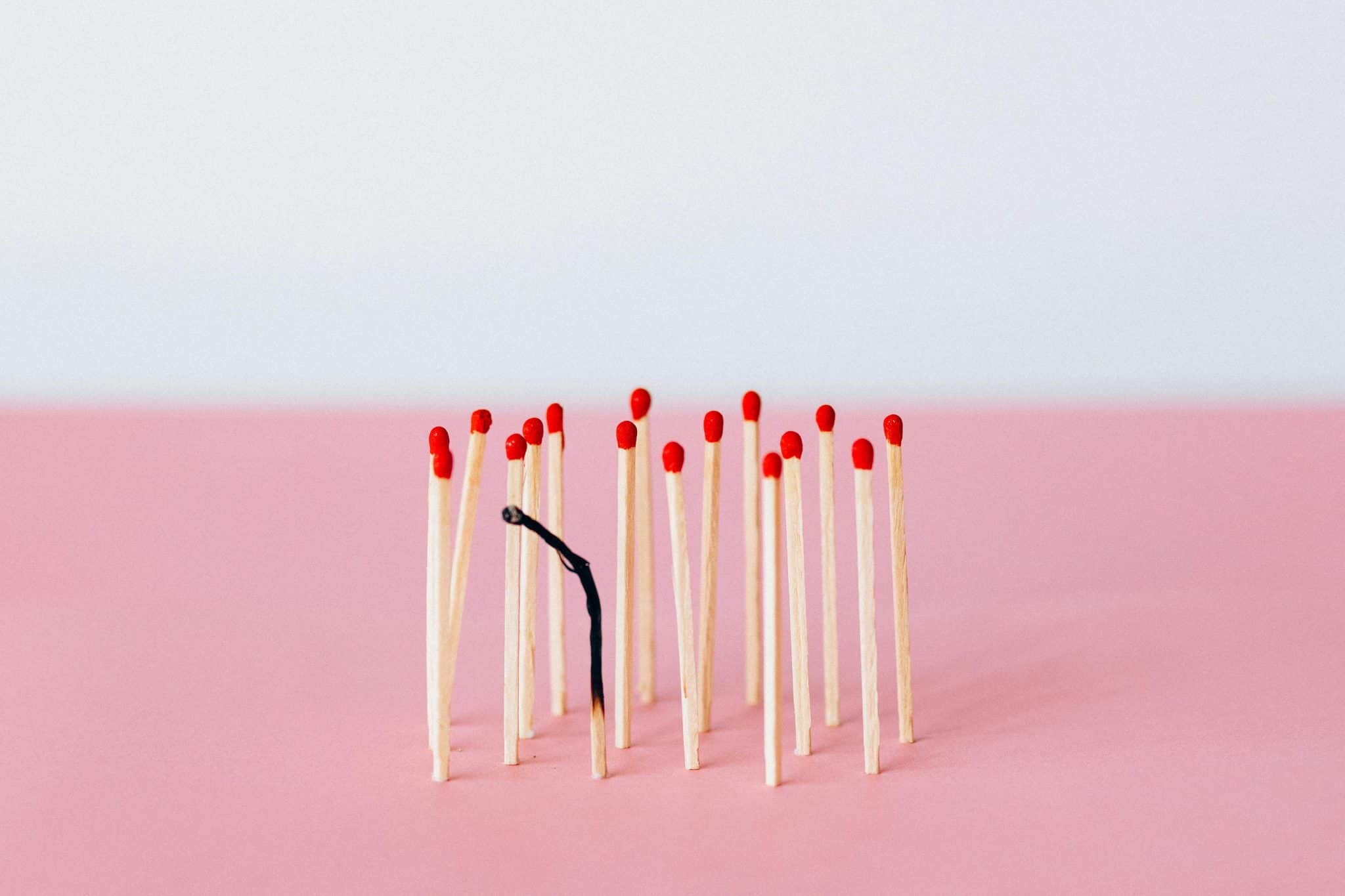Andrew Shaffer: Finding the Focus to Write Books Instead of Tweets

At Freedom, we love our users – not just because they use our product, but because they’re cool – cool people working on cool stuff. Academy Award-nominated screenwriters, bestselling authors, editors, journalists, developers, illustrators, designers, academics, coaches, podcast hosts, comic book writers, explorers, and entrepreneurs – the Freedom community is packed with curious, creative, and passionate go-getters. We love to share their stories, advice, and process because how better to learn about productivity than from the productive?
Meet Andrew Shaffer.
Andrew Shaffer is a Freedom user and the New York Times bestselling author of Hope Never Dies: An Obama Biden Mystery, the parody Fifty Shames of Earl Grey, and numerous other humorous works of fiction and nonfiction. He teaches and mentors writers at Lexington’s Carnegie Center for Literacy and Learning and he currently lives in Kentucky, with his wife, novelist Tiffany Reisz.
This week we sat down with Andrew to learn a little more about his writing and working habits, and how he stays focused in an age of distraction.
How did you know that you wanted to be an author and humorist and what were your first steps in making this your career?
I knew from a very early age that I wanted to be a writer. However, it was a long road from writing humorous short stories in grade school to where I’m at today. I definitely put in my 10,000 hours (as Malcolm Gladwell might say) before I reached a point where my work was publishable. I also took a detour, trying to write “serious” literary fiction in my twenties—dreadful stuff. Thankfully, I snapped out of that phase.
My first published book was a humorous nonfiction book on the love lives of philosophers. My next book was a parody of Fifty Shades of Grey called Fifty Shames of Earl Grey. Believe it or not, I wasn’t consciously trying to become a “humorist.” I was never the class clown, so I can’t say it ever crossed my mind. However, I found myself writing comedic books, and have been lucky enough to make a living at it.

At what point did you realize that tech was taking a toll on your productivity, time, and relationships? When did you know that you had to do something about it?
Several years ago, I said something snarky about John Tesh on Twitter. I didn’t tag him, but he responded nonetheless. “Wow, Andrew—50,000 tweets. How’s that working out for you?” Well, it wasn’t. Most days, I was writing more words on Twitter than in the projects that generated the bulk of my income. It was a problem. Thank God that John Tesh called me out for it, or I may have never sought out help!
How do you prioritize what gets your time and attention each day?
I reserve the mornings for miscellaneous tasks (emails, interviews, etc.), and then work on my main writing project from around 11am to late afternoon. If any emails come in during my writing time, I will usually ignore them until later or the next morning if they aren’t urgent. Otherwise, you get the feeling that you’re putting out fires all day long—and, let’s be honest, there aren’t a lot of real emergencies in the lives of novelists.
How do you stay focused and motivated on a daily basis? Do you have a routine, ritual, or process that helps to get into a productive flow?
Leaving the house is important. I do the bulk of my writing at coffee shops. It forces me to get dressed. While one can certainly write naked, it’s not advisable for many reasons (the least of which are potential laptop burns).
How do you optimize your environment for productivity and focus? How do you incorporate Freedom into your schedule?
I use Freedom to block social media and other distracting internet sites while writing. I don’t block the internet entirely, because I’m usually doing research at the same time—but I cut myself off from Twitter, Facebook, news, retail sites, and so on.
Why do I need an app for that? It’s not necessarily about a lack of willpower. Social media is literally rewiring our brains. We’re rats, and social media has been engineered to keep us coming back for food pellets. It’s the same mechanisms we see in addiction. Hence the incessant “notifications” that every one of these sites pesters users with.
Social media has many benefits—I’m not anti-social media. In fact, I met my wife on Twitter, so it can’t be all bad. However, there’s a time and a place for it…and that time and place isn’t when I’m trying to do deep work that requires my full concentration. Freedom helps me set boundaries and stick to them.
What is the most difficult or challenging aspect about your work or working process? Do you have any strategies that you use to help overcome these challenges?
My daily process varies depending on where I’m at in a project’s timeline. If I’m writing a rough draft, I have a daily word count goal (anywhere from 1,000-3,000 words). If I’m revising, though, it’s impossible to measure productivity in the same way because I’m cutting and pasting, I’m writing new words. Dividing my day up into intervals is the best way I’ve found to stay on task.
What resources or tools do you use daily and have found most beneficial to your working process?
Besides Freedom, I also utilize a Pomodoro app. It’s basically a timer that divides your working day into intervals. I find that timed writing sprints of 30 minutes or less—with breaks in between—helps me stay fresh and focused. If my attention is going to stray, it’s better to plan for it, rather than get frustrated with myself. Take a break, and then get back to work!
What projects are you currently most excited about?
My next book, Hope Rides Again: An Obama Biden Mystery, is out this July from Quirk Books. It’s a sequel to the humorous mystery Hope Never Dies, which was a surprise hit last summer (a surprise to me, at least). There’s very little politics in the books, which feature Joe and Barack as amateur sleuths.
What do you do outside of your work routine that helps you stay healthy and productive?
If you work from home, I can’t stress how important it is to get up at the same time each day. Otherwise, you start sleeping in later and later, and you might find yourself waking up in the late afternoon, wondering why your days are so short. It’s an easy trap to fall into. I’ve, uh, heard.
Where are you currently based?
Louisville, Kentucky. I’m originally from Iowa, but have bounced between Kentucky and Portland, Oregon over the past few years.
To learn more about Andrew Shaffer or his work, you can visit his site at AndrewShaffer.com.


